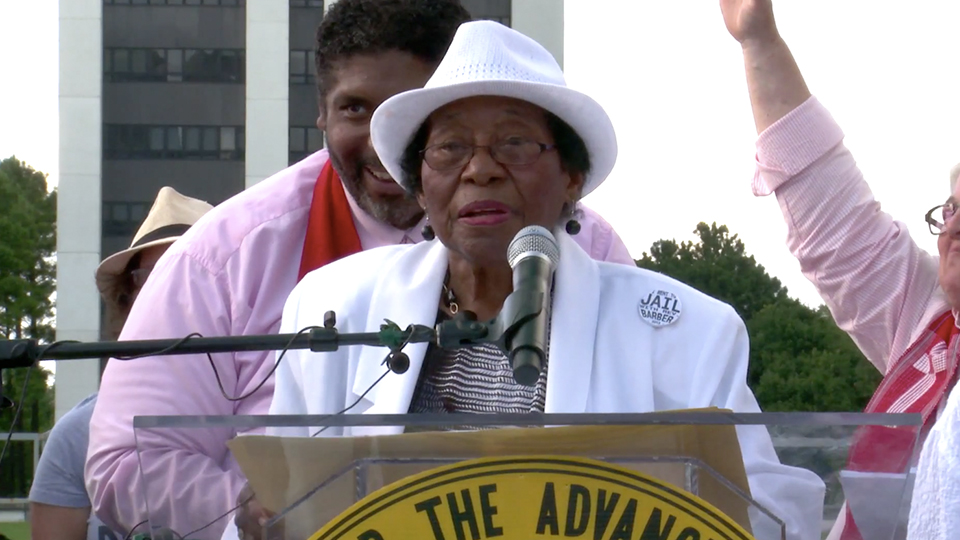When Rosanell Eaton was 21 years old and living in segregated North Carolina, she became one of the first African Americans in her county registered to vote, after successfully completing a literacy test that required her to recite the preamble to the Constitution.
But now, at 92 years old, she faces new obstacles under the voter suppression law signed by Gov. Pat McCrory (R) on Monday. For one thing, she may not qualify for the voter ID card required under the new law, because the name on her birth certificate is different from the name on her driver’s license and voter registration card. Reconciling this difference will be a costly and time-consuming administrative endeavor.
For another, she has participated in early voting since it was instituted in the state. Now, it’s been cut back a week.
She is one of several individuals who, along with civil rights groups, are already suing the state for what may be the most restrictive voting law in the nation. Other restrictive new provisions in the law include the elimination of same-day registration and early registration for high schoolers in advance of their 18th birthday, and prohibiting certain kinds of voter registration drives that tend to register low-income and minority voters.
Eaton participated in Moral Monday protests in North Carolina before the law passed, expressing opposition with fellow North Carolinians to a raft of new state conservative policies that would hurt the poor, women, minorities, and the environment.
During one Moral Monday event, her daughter Armenta told ThinkProgress on her behalf, “She thought things were smooth sailing. She’s seen the good, bad, and the ugly. Now she’s seeing the ugly again. She fought for civil rights, she was a civil rights worker, and now she sees that it’s going backward.”
Tuesday morning, she was back out again protesting the passage of the bill, this time delivering an impassioned address to an energized crowd. “Here I am at 92 years old doing the same battling,” she told the crowd. “I have registered over 4,000 citizens in the state, and at it again, alongside Republicans’ efforts to eliminate and cut early voting. … We need more, not less, public access to the ballot.” She concluded, “At the age of 92, I am fed up and fired up.”
Here is the video of Eaton’s fiery address of July 15 as she speaks at the 11th Wave Moral Monday rally at the North Carolina General Assembly.
The North Carolina law is one of several restrictive voting measures to come immediately after the U.S. Supreme Court gutted a key provision of the Voting Rights Act. In Texas, Attorney General Eric Holder intervened to challenge voting changes under another provision of the VRA. And North Carolina Sen. Kay Hagan (D) has already asked Holder to do the same in her state.
3 WAYS TO SHOW YOUR SUPPORT
- Log in to post comments

















